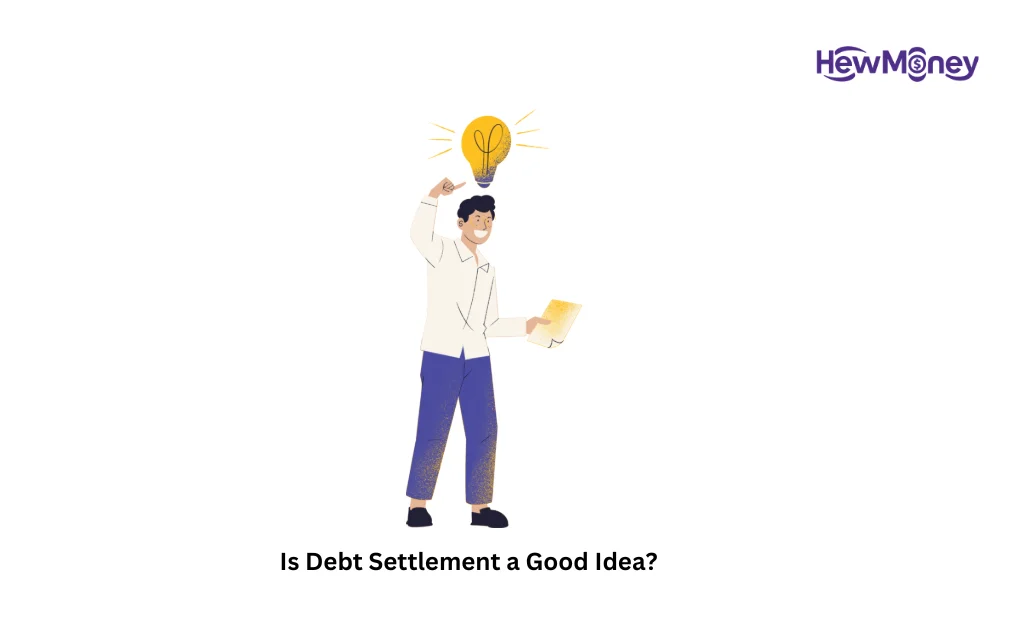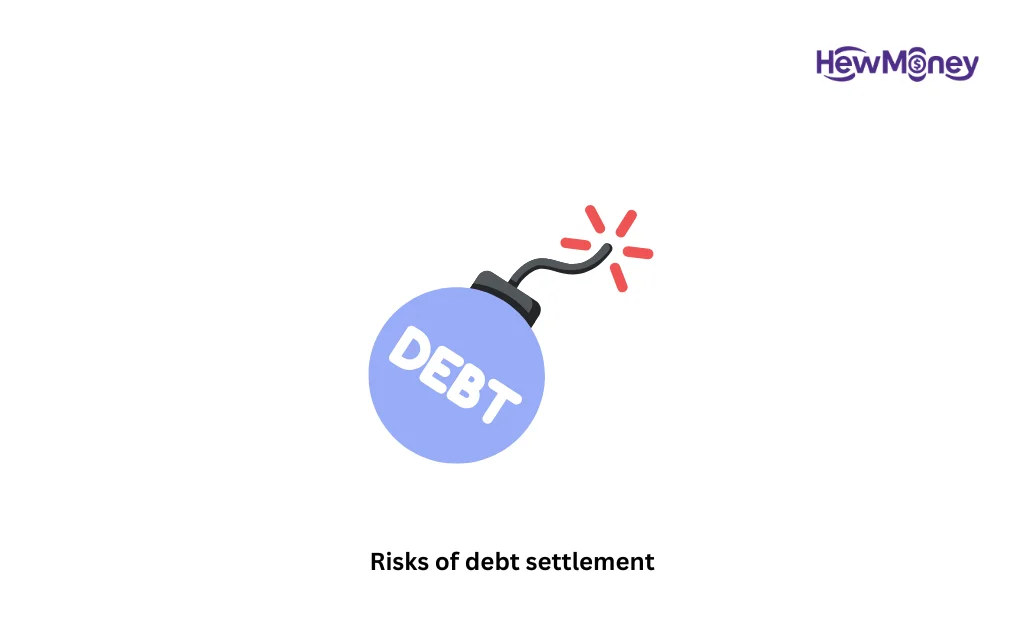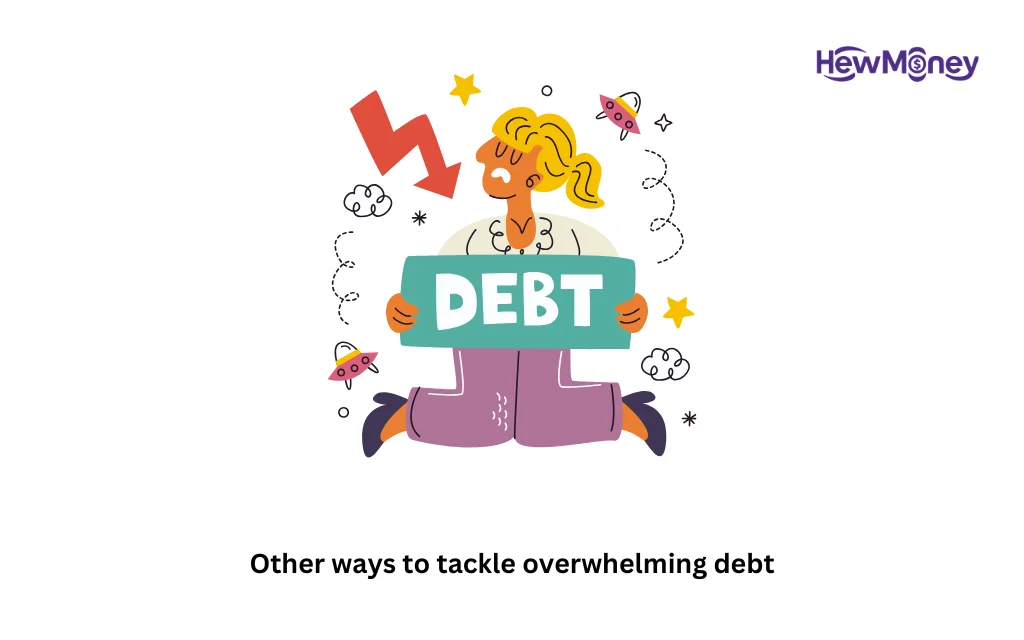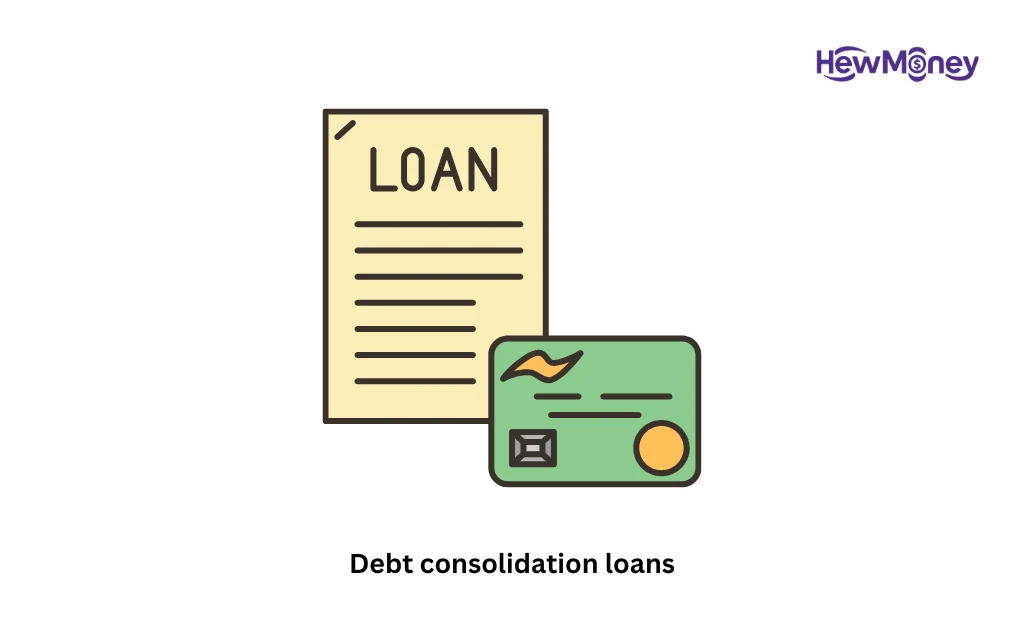Is Debt Settlement the right choice? It can lower your credit score, and success isn’t guaranteed. Consider other debt relief options first.
You may be thinking about debt settlement if you are behind on your credit card payments and want to find a way to pay off your bills.
However, since there is no assurance of success and it can negatively impact your credit score, debt settlement is typically not a good choice.
Find out more about debt settlement options, how it operates, and whether it ever makes sense to deal with a debt settlement firm.

How does debt settlement work?
The act of settling your debts for less than what you owe is known as debt settlement. Many borrowers choose a for-profit debt settlement company, even though they can settle their obligations on their own.
This is how it operates: A debt settlement business will request that you cease paying your bills and instead transfer the funds to an escrow account, which is a different account that the settlement company has created. The settlement company will use the funds in the escrow account to make an offer to your creditor as your debts get further behind. Since some money is better than none, the creditor should ideally accept the offer. The smaller amount of your debt is then paid off.
Settlement of debt is not free. For every successful settlement, debt settlement firms may take a fee ranging from 15% to 25% of your outstanding balance. For instance, you will pay a $2,500 fee (on top of the negotiated amount) if the debt settlement organization charges a 25% fee and you owe $10,000.
A 2023 economic effect analysis commissioned by the American Association for Debt Resolution found that the average debt settlement customer saves $1,440 after costs, or 31.9% of their debt burden.
Risks of debt settlement

Bryce McNitt, chief of staff for market offices at the Consumer Financial Protection Bureau, cautions that although debt settlement may seem hopeful, it can be a “very rough road.” It may take two to four years to settle your obligations, and falling that far behind on payments might have major repercussions.
“Your credit score will plummet at that point, and you might very well be in collections,” McNitt says. Additionally, collectors may use pressure methods against you. When you receive calls or are sued, it can be extremely stressful.
Any potential savings that debt settlement provides are being diminished as interest and fees from your creditor mount.
Additionally, there is no assurance that a business will pay off your debt. Some creditors refuse to cooperate with debt settlement firms or accept an offer of a debt settlement. Since resolved accounts remain on your credit record for up to seven years, any debts you are able to settle could further lower your credit score.
“I think the hazards are just too great for most individuals, but theoretically there might be some use cases where it can work out,” McNitt says.
Is debt settlement ever a good idea?
Since debt settlement at least provides a possible path forward, it might be a better option than doing nothing at all if you have no plan to deal with your debt and you are getting farther and farther behind on payments.
Additionally, debt settlement firms do not have minimum credit score criteria, so if you have lousy credit (629 score or below), settlement might be especially alluring. However, there are still better options to think about first.
Other ways to tackle overwhelming debt

Debt management plans
Plans for debt management, which are less hazardous and do not require strong credit, are frequently suggested by financial professionals. Nonprofit credit counseling organizations provide these arrangements, which combine several unsecured obligations into one at a reduced interest rate, making the debt easier to pay off.
Successfully paying off your debt can raise your credit score, even while debt management plans may temporarily lower it, according to Justin Botimer, partner development manager at nonprofit credit counseling organization GreenPath Financial Wellness. He claims that many consumers are unaware of debt management plans, despite the fact that they also have lower costs than debt settlement.
In actuality, Botimer notes, “our business does not have the large funds that for-profit companies have.” We frequently hear people say, ‘I wish I had known about you sooner.’ This comes after they were forced to clear their debt.
Debt consolidation loans

Another option is a debt consolidation loan. You pay back the new loan in predetermined monthly installments, hopefully at a reduced interest rate, after using the funds from the previous loan to pay off your bills all at once. However, because you need a high credit score to be eligible for debt consolidation loans with low interest rates, it can be difficult to get approved. Borrowers with poor credit can apply for debt consolidation loans from some credit unions and online lenders.
DIY debt settlement
You can attempt to pay off your credit card debts on your own if you are unable to do so. According to Botimer, creditors are frequently open to reaching a settlement directly with borrowers, which may save your relationship with the creditor and save you having to pay a large fee to a debt settlement firm. You can request additional relief choices, such as a lower interest rate or monthly payment, if the creditor refuses to settle.
Bankruptcy
For those whose debt payments take up a sizable amount of their income, bankruptcy may be an option. Bankruptcy can shield you from aggressive creditor actions, such as lawsuits or wage garnishment, even if it may temporarily harm your credit.
A legal procedure called bankruptcy can assist people or companies in getting rid of or restructuring excessive debt. Although it offers a new beginning, it is not a choice to be made hastily. Individual Voluntary Arrangements (IVAs) and Bankruptcy Orders are the two primary forms of bankruptcy in the United Kingdom. There are severe repercussions associated with both choices, such as a major effect on your credit score and possible asset loss.

